BIG STORY
NNPCL Not Transparent On Subsidy, Dollar Revenues — World Bank
Published
2 years agoon
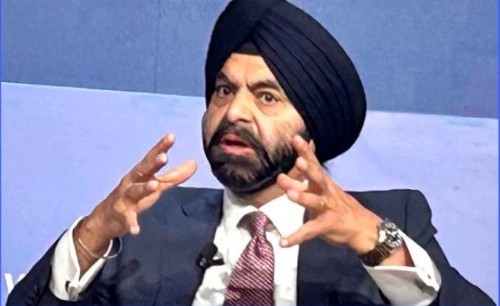
The Nigeria National Petroleum Corporation Limited is not transparent about the financial gains from fuel subsidy removal, the World Bank has disclosed.
This extends to subsidy arrears that are still being deducted and the impact of subsidy removal on federation revenues, the bank noted. The Washington-based made this call in its Nigeria Development Update, December 2023 edition titled, ‘Turning The Corner (from reforms and renewed hope, to results).
This is the Minister of Finance and Coordinating Minister of Economy, Wale Edun, revealed that the government was ready to scrutinise the revenue flow from the NNPCL.
According to the World Bank, while revenue gains from the exchange rate reforms are visible, more clarity is needed on oil revenues, including the fiscal benefits from the PMS subsidy reforms.
It declared, “nominal oil revenue gains have been evident since June; these are mostly categorised as “exchange rate gains”, suggesting that they are due to the naira depreciation.
“Except for the exchange rate-related increases, however, there is a lack of transparency regarding oil revenues, especially the financial gains of the Nigeria National Petroleum Corporation from the subsidy removal, the subsidy arrears that are still being deducted, and the impact of this on Federation revenues. It is also unclear why retail petrol prices have not changed much since August, despite fluctuations in the exchange rate and global oil prices.”
The Bretton Woods institution further expanded that gains in net oil revenue of the federation were lower than what they should have been considering what the removal of fuel subsidy should have added to the accounts.
It stated that fuel subsidy cost the federation about N380bn a month, and once removed, the federation account should have recorded an increase in net oil revenues.
It said, “However, most of the gains in the oil revenues in H2 2023, as reported by OAGF, can be attributed to exchange rate gains. Without exchange rate gains, net oil revenue between January and August would have declined by 0.2 of a percentage point of full-year GDP, all materialising in the July–August period.
“In August, additional revenue from 40 per cent profit of Production Sharing Contracts and the interim yearly dividend were reflected in the accounts. However, these were not as high as what the gains from removing the gasoline subsidy should have been. Given that petrol pump prices have not changed in line with market fundamentals (notably exchange rate movements and global oil prices), there is a risk that the implicit fuel subsidy has reemerged, potentially keeping net oil revenues lower than expected.”
The institution further noted that the reform of fuel subsidy should help the NNPCL to settle its arrears and start paying fully for the Federation’s share of costs in joint venture operations, thereby allowing oil production to gradually increase over time.
Also speaking at the presentation of the report, the Coordinating Minister of the Economy, Edun noted that the removal of fuel subsidy saved the government’s finances.
He stated that while expectations that subsidy removal should boost the government’s revenue, it was faced with debt funding and a high fiscal deficit.
He said, “In terms of the government’s finances, you have rightly pointed out that following the removal of subsidy, there is an expectation that there would be fiscal dividends and it’s fair to say that without it, government finances will be in total disarray now. However, there is debt funding, pressure on fiscal deficit, and on government finances, and borrowings which have been inherited.
“Our levels of borrowing are being reduced and there is a plan to reduce that fiscal deficit over time. On the revenue side, the first source is oil, and I expect that there will be serious scrutiny on oil revenue and production and insistence on raising oil production and similarly that the revenues are brought into the federation account following the constitution. I think there will be added scrutiny, and I am sure NNPC is getting ready for that.”
Edun further declared that there would be a robust rollout of measures to raise tax revenue soon. He, however, highlighted that tax rates would not be increased but a lot would be done regarding efficiency, digitalisation, and improved collection.
He added that waivers and tax incentives would be scrutinised to revamp it and save leakages, particularly among ministries, departments and agencies.
- Subsidy Removal And Controversies
On May 29, President Bola Tinubu announced the removal of fuel subsidy with, “Subsidy is gone,” to free up foreign exchange earnings.
In his August 1 national address, Tinubu disclosed that the Federal Government had saved about N1tn in two months after the removal of the petrol subsidy freeing up funds for other things in the economy.
He said, “In a little over two months, we have saved over a N1tn that would have been squandered on the unproductive fuel subsidy which only benefitted smugglers and fraudsters.”
According to him, the funds saved from subsidy removal “will now be used more directly and more beneficially for you and your families.”
However, there have been concerns that the dividend of subsidy removal has not trickled down to the average Nigerian.
Recently, a former Governor of the Central Bank of Nigeria, Sanusi Lamido Sanusi, alleged that the NNPCL might not be remitting enough dollars to the federation account despite subsidy’s removal.
Speaking during the Bank Directors Summit organised by the Bank Directors Association of Nigeria recently, Sanusi, said, “The exchange rate needs to be stabilised and we have to address the fundamental question, why is there no money coming in?
“Why is the NNPCL not able to bring in dollars? Am sorry this is the question that cost me my job and I will continue asking this question until NNPCL fixes it up or until I die. Where are the dollars? We need to shine a light on the NNPCL. The finance minister cannot tell you because he doesn’t have a monitoring system that reports to him.
“The finance minister can’t tell you how many barrels of petrol we produce and export. It is only the NNPCL that can give those figures. The finance ministry needs to know how much oil we produce daily, how much we sell, and where the money is going. We are no longer paying subsidies so where are the dollars? It was under recovery during the subsidy era and that has been stopped, so where is the money?”
Sanusi noted that the NNPCL was opaque about its dealings, shrouding many of its dealings in secrecy.
- NNPCL Dollar Revenues
Defending the oil company’s finances, the NNPCL’s Chief Financial Officer, Umar Ajiya, who was representing the Group Managing Director, Mele Kyari, disclosed that since the inflow of dollars into the country is tied to oil revenues, the country is facing the consequence of falling oil production, insecurity, and lack of investments in the sector.
He also said the NNPCL had been using its revenue to import refined PMS and service debt. He said, “Just to clarify and let the audience go with a well-balanced information. The inflows of dollars into the country are tied to oil revenues and the oil revenues are driven from oil production.
“The consequence of what we are facing today is a fall in oil production simply because of insecurity and lack of investments. The net dollar accruable from oil operations is what the NNPCL uses to import PMS. The PMS is sold in naira, you can’t sell it in dollars. Consequently, you would find out that the net dollar inflows into the NNPCL coffers are spent on the import of basically PMS and debt service.”
Ajiya stressed that the surplus dollars inflow to the CBN and any other bank in the country can only happen when the country starts producing PMS over its domestic requirement.
According to the CFO, adequate forex inflow can also happen if insecurity is addressed, and such development will attract partners to bring in fresh dollars in the form of investment to oil operations.
He added, “So until such a point where we have excess production over and above what we consume, then we will begin to see much dollar liquidity coming into this country. The whole consumption pattern of most Nigerians is foreign import-dependent and until we come to a position whereby, we begin to consume what we produce and also add value to our raw materials to bring further FX into the country.”
- N750/litre Petrol Price
In its report, the global bank noted that there is a risk that Federal Government may still be paying for fuel subsidy which is why net oil revenues are lower than expected.
During his presentation at the unveiling of the report, the bank’s Lead Economist for Nigeria, Alex Sienaert, noted that fuel processes are currently not cost-reflective in the country.
He disclosed that the market price of petrol should be around N750/litre.
He said, “It does seem like petrol prices are not fully adjusting to market conditions, so that hints at the partial return of the subsidy, if we estimate what is the cost reflective of retail PMS price of the would-be and assuming that importation is done at the official FX rate.
‘’Of course, the liberalisation is happening with the parallel rates, which is the main supplier, the price would be even higher. These are just estimates to give you a sense of what cost-reflective pricing most likely looks like. We think the price of petrol should be around N750 per litre more than the N650 per litre currently paid by Nigerians.”
According to him, there is a need for the government to clarify how prices at the pump are fixed as opposed to market conditions.
He noted that the government must ensure that revenue gains from the removal of fuel subsidy materialises, while improving the transparency of the NNPCL with regards to profits and oil revenues to be remitted to the Federation Account.
- 104million Nigerians Poor
While noting that important reform decisions have been taken for Nigeria to avoid a fiscal cliff, the World Bank stated that these reforms were followed by difficult economic adjustments.
Since the removal of fuel subsidy, retail fuel prices have increased by more than 163 per cent and after shifting to a unified, market-reflective foreign exchange regime, the naira has depreciated against the US dollar by about 41 percent in the official market and 30 percent in the parallel market.
The sharp increase in the price of fuel and other imported goods has contributed to inflation, which hit an 18-year record high of 27.3 percent year-on-year in October.
However, the World Bank insists that the recent reforms will undo the increases in poverty seen in recent years from 2024 onward, albeit only marginally and slowly.
It stated that sluggish growth and rising inflation increased poverty from 40 per cent in 2018 to 46 per cent in 2023, pushing an additional 24 million people below the national poverty line.
It said the number of poor Nigerians rose from 79 million in 2018 to 104 million in 2023, with urban poor, more exposed to inflation, increasing from 13 to 20 million, while the number of poor people in rural areas increased from 67 to 84 million.
It argued, “In the medium term, the reforms will reverse this trend through higher growth and lower inflation, but to a limited extent, with poverty rates decreasing from 46 per cent in 2024 to 44 percent in 2026.”
According to the World Bank, the successful implementation of the initiated reforms will be the first step toward improving Nigeria’s growth prospects.
It highlighted that the implementation of fuel subsidy removal and foreign exchange unification rate would push economic growth to 3.5 per cent between 2023–2026, adding 0.5 percentage points to the growth potential in a scenario in which the reforms had not been implemented.
The global bank further stated that in the medium term, the economy will begin to benefit from increasing fiscal space for development spending.
While noting that inflation will begin to fall in 2024, it added, “Together, such reforms would boost investment and productivity across sectors, unlocking the stronger growth that Nigeria’s economy demonstrably capable of, and allowing economic development to regain its fast pace.”
Credit: The Punch
You may like
-
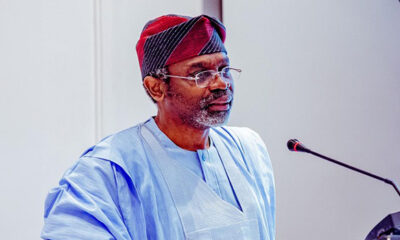

No Effective Governance Without Full Local Government Autonomy — Femi Gbajabiamila
-


DETAILED: Coroner Orders Prosecution Of Auxiliary Nurse Over Mohbad’s Death, Probe Into Police Inaction
-
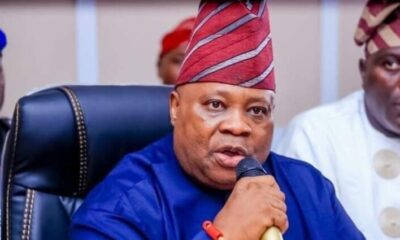

Jitters In Osun APC, PDP Over Adeleke’s Defection Plan
-


JUST IN: US Clarifies New Visa Rule For Nigerians, Cites Global Security Standards
-
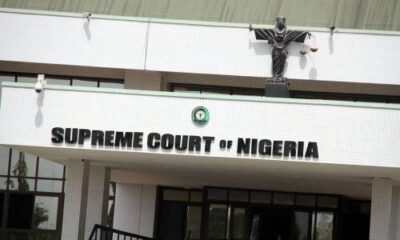

Autonomy Standoff: Governors Get N4.5tn Local Government Funds One Year After Supreme Court Ruling
-
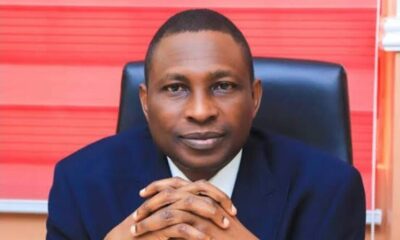

Corrupt Politicians Using Crypto Wallets To Launder Money — EFCC Chairman Olukoyede
BIG STORY
No Effective Governance Without Full Local Government Autonomy — Femi Gbajabiamila
Published
14 hours agoon
July 12, 2025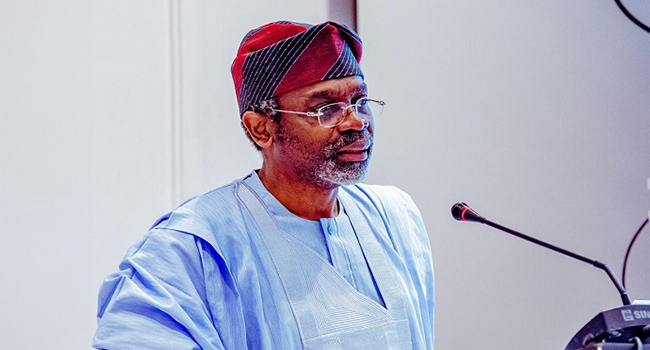
The Chief of Staff to President Bola Tinubu, Femi Gbajabiamila, has stated that governance at the local government level cannot be effective without complete autonomy.
He made the remark while addressing journalists after voting in the Lagos State local government elections in Surulere on Saturday.
When asked about the progress of implementing the LG autonomy ruling by the Supreme Court one year after it was delivered, Gbajabiamila described the process as ongoing and said it would be completed with time.
Gbajabiamila said, “The ruling was welcome by everybody. It’s the execution of that ruling and the implementation of that ruling that we are still trying to dot the Is and cross the Ts.
“I believe in a matter of time, we will realise full autonomy. There cannot be effective governance without full autonomy. That’s what we are working toward.”
In July 2024, the Supreme Court granted autonomy to all 774 local government areas across the country following a case filed by the federal government through the Minister of Justice and Attorney General of the Federation. However, the ruling is yet to be fully implemented.
Following the judgement, the Senate urged state and local governments to immediately adhere to the court’s directive, especially regarding local government accounts and direct fund disbursements.
The Senate also moved to amend relevant sections of the Constitution to ensure full local government autonomy nationwide.
The announcement was made by Deputy Senate President Senator Jibrin Barau, after lawmakers emerged from a closed-door session where they discussed alleged efforts by some state governments to bypass the Supreme Court’s ruling on July 11.
BIG STORY
DETAILED: Coroner Orders Prosecution Of Auxiliary Nurse Over Mohbad’s Death, Probe Into Police Inaction
Published
14 hours agoon
July 12, 2025
The Lagos State Coroner’s Court in Ikorodu has instructed the Director of Public Prosecutions to initiate legal action against Feyisayo Ogedengbe, the auxiliary nurse who gave the injection allegedly linked to the death of Nigerian artist Ilerioluwa Aloba, popularly known as Mohbad.
In her ruling delivered on Friday, Magistrate C.A. Shotobi stated that Ms Ogedengbe was not a registered nurse or licensed medical professional, and therefore acted outside the law by administering a tetanus injection that reportedly led to complications resulting in the singer’s death.
“This is not a case of foul play but one of medical negligence,” Magistrate Shotobi said. “While I cannot certify a definitive cause of death, I draw a link from the sudden reaction after the deceased was injected by the nurse.”
She further raised alarm about lapses in healthcare regulations, highlighting how unqualified individuals are allowed to operate as health practitioners.
In a related directive, the court ordered an inquiry into the failure of the Nigeria Police Force to act on a petition filed by the late singer before his death, asking relevant authorities to determine if negligence occurred.
Family members and their legal team—Wahab Shittu, a Senior Advocate of Nigeria, along with Kabir Akingbola and Abiola Kolawole from the African Women Lawyers Association—were in attendance when the ruling was delivered.
Testimonies and autopsy reports
According to the Coroner, 19 individuals, including relatives, doctors, and police personnel, provided testimony during the inquiry.
Based on the evidence of two independent pathologists who conducted separate autopsies, the court observed that the advanced state of decomposition of Mohbad’s body made it difficult to confirm an exact cause of death.
However, both experts agreed that a severe anaphylactic reaction to the tetanus shot was the most probable cause.
“The death is not linked to any evidence of foul play, but to medical negligence,” Magistrate Shotobi reaffirmed.
Criticisms of family and law enforcement
The court found no direct connection between Mohbad’s passing and the alleged harassment by his former label boss Azeez Fashola, known as Naira Marley, and associate Samson Eletu, also called Sam Larry, despite evidence of continued intimidation.
Nevertheless, the court condemned the manner of the singer’s burial, referring to it as “undignified.”
It criticised Joseph Aloba, the singer’s father, for not obtaining a death certificate or requesting an autopsy prior to the burial, despite receiving N2 million from fellow artist David Adeleke (Davido) to facilitate a proper funeral.
Omowunmi, Mohbad’s wife, was also faulted for failing to seek timely professional medical care for the singer over a 15-hour period and not adequately documenting the circumstances surrounding his death.
“She had a duty of care to her husband which was not sufficiently discharged,” the court said.
The court also condemned the police for ignoring the singer’s petition before his death, which included claims of assault and threats to life.
Describing the situation as “dereliction of duty,” the court ordered the immediate reopening of the case and instructed the police to question all individuals mentioned in the petition, including Naira Marley and Sam Larry.
Systemic breakdowns and court recommendations
Magistrate Shotobi noted that the circumstances surrounding Mohbad’s death exposed “systemic collapse” across multiple sectors such as family, healthcare, law enforcement, and the entertainment industry.
She called for the prosecution of Ms Ogedengbe on charges of gross medical negligence and urged that Mohbad be reburied in compliance with public health and legal standards.
She also demanded a formal investigation into police inaction regarding the deceased’s petition and advocated for legislative reforms to tackle bullying and abuse in the entertainment sector.
The court recommended a ban on intravenous medication by unlicensed individuals and emphasized that all sudden deaths involving young, seemingly healthy people must be investigated before burial.
Traditional funeral rites, the court warned, must not override statutory procedures in suspicious or abrupt death cases.
She also cautioned online content creators and influencers that disseminating falsehoods about court proceedings could be classified as obstruction of justice under Nigeria’s Cybercrimes Act.
Public reaction
The legal team representing Mohbad’s family praised the decision as a significant ruling.
Speaking to journalists, Mr Shittu, counsel to the singer’s father, described the court’s findings as “unprecedented jurisprudence” and “a PhD thesis in justice.”
“The ruling analysed the testimony of 19 witnesses. It revealed patterns: Mohbad felt unsafe, was harassed, and lacked institutional protection,” he said.
He added that the rushed burial compromised a thorough forensic investigation. “While Islamic law encourages swift burial, public interest in this case should have prevailed.”
Mr Shittu also reiterated the court’s position that police should act immediately on the singer’s petition, stating, “This is not a flawed investigation—it was never properly conducted in the first place.”
Kabir Akingbola, who represented Mohbad’s wife, cited cultural and emotional limitations. “Yoruba customs limit a wife’s power to challenge a father-in-law. Even if she wanted to intervene, grief and tradition may have silenced her,” he explained.
Background
Mohbad passed away on 12 September 2023 at age 26 and was buried the next day, sparking public outrage and widespread demonstrations.
Following public pressure, the Lagos State Police Command launched a 13-member investigation team on 18 September. His body was exhumed on 21 September for autopsy.
In April 2024, a second autopsy was ordered after the initial toxicology results were deemed inconclusive. US-based NMS Labs, allegedly contracted for testing, later denied receiving any related sample.
Summons were issued to key individuals including Naira Marley, Sam Larry, the nurse, and Mohbad’s wife. In March 2025, calls were made for Magistrate Shotobi to step aside from the case over alleged bias, but she continued until the final ruling.
Credit: Premium Times
BIG STORY
Jitters In Osun APC, PDP Over Adeleke’s Defection Plan
Published
14 hours agoon
July 12, 2025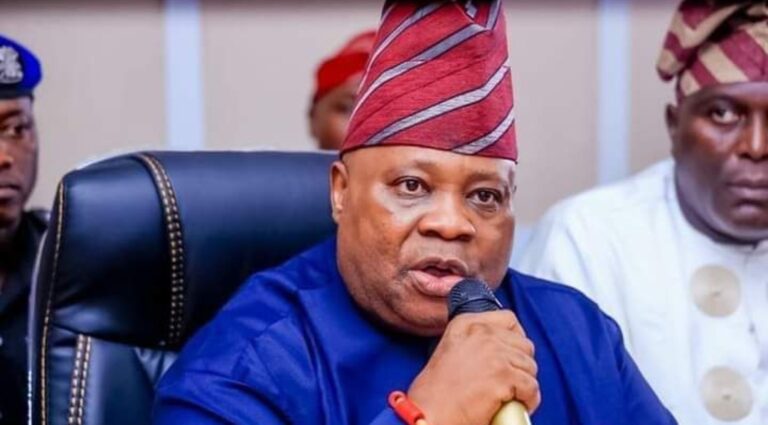
Panic has gripped both the Peoples Democratic Party and the All Progressives Congress in Osun State amid reports that Governor Ademola Adeleke may be planning to leave the PDP for the APC.
According to findings by The Punch, several close associates and appointees of the governor confirmed that Adeleke is close to finalising the defection.
The development has unsettled the APC, prompting a protest against Adeleke on Friday. However, in a statement by his spokesperson, Olawale Rasheed, the governor denied having any such intention.
Speculation about Adeleke’s defection began in June after he paid a visit to President Bola Tinubu at his Bourdillon residence in Lagos.
The governor was accompanied by his brother, billionaire businessman Adedeji Adeleke, and his nephew, Afrobeats artist David Adeleke, also known as Davido.
News of the visit was made public in a post on X by Tinubu’s Special Assistant on Social Media, Dada Olusegun.
Although the purpose of the meeting was not disclosed, the release of photos showing Tinubu and his wife in a warm exchange with the Adelekes triggered tension in both the Osun PDP and APC camps.
The rumour gained renewed attention this week following a series of cryptic posts by some of Adeleke’s aides on social media.
Close associates confirm move, APC ticket offer
Insiders in the governor’s cabinet, including a commissioner and two special advisers, told our correspondents that Adeleke had concluded plans to join the APC.
The commissioner, who spoke on condition of anonymity due to the sensitivity of the matter, said Adeleke had briefed some of his allies in his cabinet and the House of Assembly about his defection plan.
“Mr Governor will join the APC, but the official declaration will not be now. His planned defection is a result of political threats, the Federal Government withheld local government funds, and there are emerging threats to the businesses of his billionaire brother, Dr Deji Adeleke. So, there are many things at stake,” he said.
A senior official of the APC in the state also confirmed that the governor was consulting with APC leaders, but said his fate hangs on Tinubu’s move.
“Adeleke has been consulting many APC leaders. He has employed some mercenaries to lobby the President. But Baba Bisi Akande and Oyetola have not consented to his defection. The President will need to convince them before the governor will declare his defection,” the APC official said on Thursday.
In a symbolic move, the Osun PDP Director of Media and Information, Oladele Bamiji, who is also a Senior Special Assistant to Adeleke, posted “On Your Mandate!” on his Facebook timeline around 5 pm on Thursday.
The slogan is synonymous with Tinubu, having originated from his loyalists in Lagos State.
Bamiji’s post triggered reactions from other Facebook users, including APC members kicking against the move.
One of the governor’s special advisers, who also spoke on condition of anonymity due to the sensitivity of the matter, said the governor’s apparent uncertainty over the validity of his second-term ticket in the face of the PDP crisis might have triggered his proposed defection.
“INEC has released the timetable for the 2026 governorship election, and the PDP primary is coming up in September. Who is going to sign Adeleke’s nomination form amid the ongoing crisis in the PDP?
“We are all afraid that whatever happens in the PDP regarding the Osun election may be subject to litigation, which may invalidate the governor’s nomination and victory. That is why the governor wants to leave,” the aide said.
Also subtly confirming the move, another SSA to Adeleke, Olalekan Badmus, tweeted on his X handle on Friday: “After we all agreed to this, the next question is where?
“Governor Adeleke is currently consulting and evaluating all options on the table, including the peculiarities of all current political parties. Reports of imminent arrival at a particular party are at best speculative.”
Amid growing confirmation from the governor’s close associates, The Punch gathered that Tinubu’s Chief of Staff, Femi Gbajabiamila, and members of the President’s immediate family reportedly facilitated Adeleke’s move to the APC.
Adeleke remains in PDP – Spokesman
Reacting to the defection rumour, the spokesperson for the Osun State Government, Rasheed, said Adeleke remained in the PDP and was not considering joining the APC.
In a statement on Thursday, Rasheed quoted Adeleke as saying, “I assure the good people of Osun that I remain part and parcel of the PDP family. I am not defecting to any party.”
He said the governor reaffirmed his commitment to the implementation of his administration’s five-point agenda and urged the public to disregard what he described as “fake news,” while assuring continued delivery of good governance and democratic dividends.
Also reacting, the National Secretary of the APC, Ajibola Basiru, said the party’s national secretariat was unaware of any defection plan by the Osun governor.
In an interview (with Saturday Punch), Basiru said, “The only thing I can say is that I’m not aware of Adeleke’s so-called planned defection as the National Secretary of the party. All other things are hypothetical for now. I cannot be reacting based on social media frenzy!”
Similarly, the spokesperson for the Osun APC, Kola Olabisi, said the party leadership in the state had no knowledge of any move by Adeleke to join their ranks.
“It is still in the realm of speculation. The leadership of the APC in Osun, led by Sooko Tajudeen Lawal, is not aware of the governor’s defection plan,” he said.
When asked whether the party would welcome Adeleke, Olabisi replied, “Only the leadership of the party will speak on that.”
Panic in APC, PDP camps
Despite official denials, there is palpable tension among members of both the APC and PDP in Osun State.
It was gathered that the development has unsettled many APC members, particularly loyalists of former Governor Gboyega Oyetola, who fear that Adeleke’s entry into the APC could jeopardise the chances of their governorship aspirant, Bola Oyebamiji.
On the PDP side, some members have also expressed concern that the party may suffer significant setbacks if Adeleke defects, as the Adeleke dynasty is regarded as the party’s primary financier in Osun State.
It was noted that several APC members took to social media, especially Facebook, to express displeasure over the alleged plan.
A former Special Adviser to ex-Governor Oyetola on Education, Alhaji Jamiu Olawumi, wrote on his Facebook timeline on Thursday, “The Adeleke Challenge! If, as a governor, you have delivered, is it not shameful trying to run away from your own party?”
Another Oyetola loyalist, Adedeji Adebayo, also took to Facebook to criticise APC National Secretary, Basiru, for saying that President Tinubu would determine the APC’s governorship candidate in 2027, rather than speaking out against Adeleke’s rumoured defection.
He wrote, “The Adelekes’ agents in the APC are celebrating, granting media interviews about the phantom defection of the so-called ‘omo-gba-feeder’. Yes, the same omo-gba-feeder. They don’t care if it goes to a dullard since it’s not coming to them. That is the kind of wanton politics they play. Meanwhile, it is what it is: phantom defection. If Obente defects to APC, perhaps it is the APC AISU Chapter.”
‘No automatic ticket for gov’
On Friday, some Osun APC members staged a peaceful protest at the party’s state secretariat in Osogbo, insisting that if Adeleke defects, he should not be given an automatic governorship ticket.
Led by a member of the APC, Taofeek Afolabi, the protesters, mostly youths, said it would be unfair to hand the incumbent governor the party’s ticket without a contest.
“We are members of the All Progressives Congress, and we are here this morning to register our concern over the rumoured defection of Governor Ademola Adeleke to the APC. We are not saying he should not join our party. Adeleke joining the APC will boost our party. He is the current governor, and having him with us will strengthen the party,” Afolabi said.
“However, what we don’t want is the party giving Governor Adeleke an automatic ticket. If he wants to re-contest, he should express interest and contest the gubernatorial ticket with other aspirants.
“There are people who have shown interest in the race already, and we don’t want him to be handed the ticket without a proper contest. That is the only thing we are against. We have no issue with him joining our party,” he added.
PDP, APC chieftains divided
Saturday PUNCH gathered that members of both the PDP and APC remain divided over the governor’s reported defection plan.
While a section of the PDP reportedly supports the move, others have rejected it, insisting they would not follow the governor into another party.
A former Deputy National Publicity Secretary of the PDP, Diran Odeyemi, said realignment was part of politics and that there was nothing wrong with adjusting strategies to win elections.
“Politics is dynamic. It’s not like mathematics, where you get a fixed answer to an equation. It’s about permutation here and there. It’s a game that is played according to situations and circumstances, but with the sole purpose of winning,” Odeyemi said.
“Realignment is key in politics, more so because it is a game of interest. There is nothing wrong with redefining a strategy if it is aimed at winning any contest. As for us in the PDP, Governor Ademola Adeleke’s second term is sacrosanct; the way and manner to go about it is secondary.”
Meanwhile, a chieftain of the APC in Osun and an aide to ex-Governor Oyetola, Jamiu Olawumi, maintained that while party membership is a right, acceptance is not automatic.
“Politics and joining a political party are fundamental human rights. Joining a party is a free entry and free exit. However, in some situations, you cannot just join a political party because there are certain criteria for fresh members. If you’re not fit for it, we might not welcome your overtures,” he said.
Olawumi also dismissed the defection report as speculation.
“The highest hierarchy of the party has not spoken about the defection. Everybody is just reacting to rumours — we’ve had both confirmations and denials. This shouldn’t be given serious attention by serious people. In the APC, we are serious people, and we don’t dwell on this kind of unserious speculation. Let it remain in the realm of rumour,” he added.
We’re not worried—APC aspirants
Some governorship hopefuls in the Osun APC has said the defection rumour is not giving them sleepless nights.
One of them, Dotun Babayemi, said the development did not come as a surprise and would not affect his ambition.
Speaking through his spokesperson, Kayode Oladeji, Babayemi stated that Adeleke’s defection would, in fact, be an addition to the APC.
“We are not worried about Governor Ademola Adeleke or anybody coming into our great party, APC. We all know that democracy is a game of numbers. This means it is becoming clear that our party is poised to win in 2026, and President Tinubu’s victory in the 2027 elections shall be resounding,” he said.
“In the same vein, his joining our party cannot jeopardise my chances. My confidence is based on the amazing support and love being shown to me within and outside the APC, across the state, by both the old and the young.
“As to whether it is right for the governor to dump the PDP for the APC, I am not sure that is the real question — because we don’t know what is chasing him from the PDP,” he added.
Similarly, another governorship hopeful, Akin Ogunbiyi, said he was not surprised by Adeleke’s reported defection plan, declaring that the party would win the next governorship election in the state.
“I am not worried that the current governor is struggling to come to the APC. He is a serving governor, and he can come to the APC. Our party is a winning team, and we can all see what is happening at the federal level — what our father, the President, is doing.
“So, I am not surprised that not only in Osun State, but even across other states, people are declaring for the APC because it is a progressive party,” Ogunbiyi said.
PDP senators to dump party
Meanwhile, Saturday PUNCH has gathered that two PDP senators from Osun State, Adenigba Fadahunsi (Osun East) and Olubiyi Ajagunla (Osun Central), have concluded plans to leave the party.
According to aides, both lawmakers met with President Bola Tinubu at the Aso Rock Villa about a month ago, where the decision regarding their defection was finalised.
One of Ajagunla’s top aides, who spoke on condition of anonymity, said, “Ajagunla will leave the PDP soon, there is no doubt about that. The Adeleke dynasty is not treating him well, and our town, Ila-Orangun, has not benefited from the current administration in terms of infrastructure development.
“People know that Ajagunla has left the PDP; he just hasn’t announced his defection officially,” the aide said.
Credit: The Punch
Most Popular
-

 BIG STORY5 days ago
BIG STORY5 days agoJUST IN: ASUU Suspends Strike As Federal Government Pays June Salaries
-

 BIG STORY2 days ago
BIG STORY2 days agoREVEALED: Trump’s Visa Clampdown Linked To Nigeria’s Refusal To House Asylum Seekers — TheCable Report
-

 BIG STORY2 days ago
BIG STORY2 days agoJUST IN: US Clarifies New Visa Rule For Nigerians, Cites Global Security Standards
-

 BIG STORY5 days ago
BIG STORY5 days ago“JAPA”: US Embassy Begins Screening Nigerian Students’ Social Media Accounts
-

 BIG STORY4 days ago
BIG STORY4 days ago“JAPA”: Canada Increases Minimum Proof Of Funds To N17m For Immigrants
-

 BIG STORY3 days ago
BIG STORY3 days agoTunji-Ojo Meets US Envoy Over New Visa Policy, Says FG Will Curb Overstay By Nigerians
-

 BIG STORY4 days ago
BIG STORY4 days agoUK Introduces eVisas For Nigerian Study, Work Visa Applicants
-

 BIG STORY2 days ago
BIG STORY2 days agoLagos Steps Up: Wahab’s Cleanup Blitz And Plastic Ban Herald A New Environmental Era — By Babajide Fadoju









